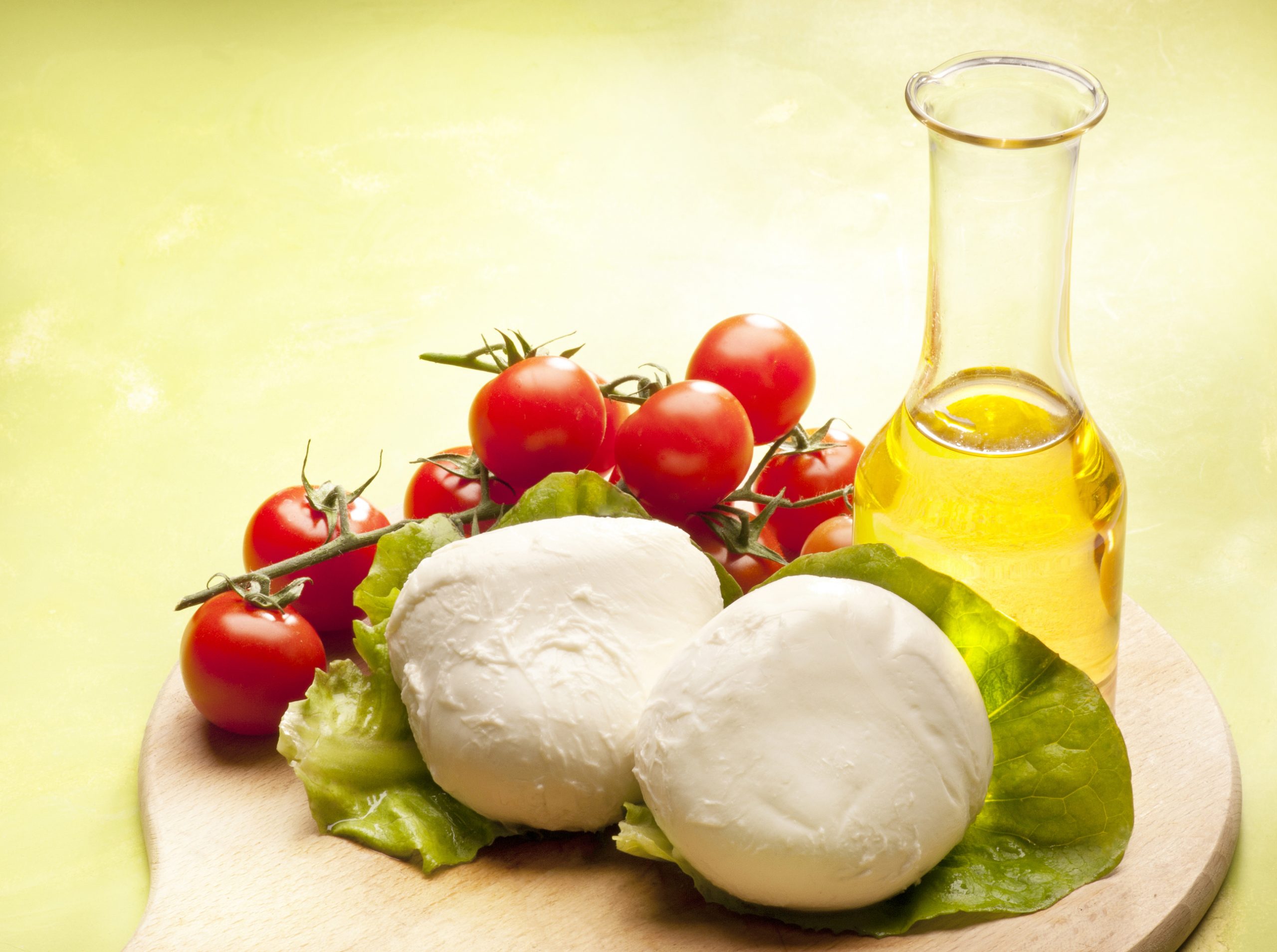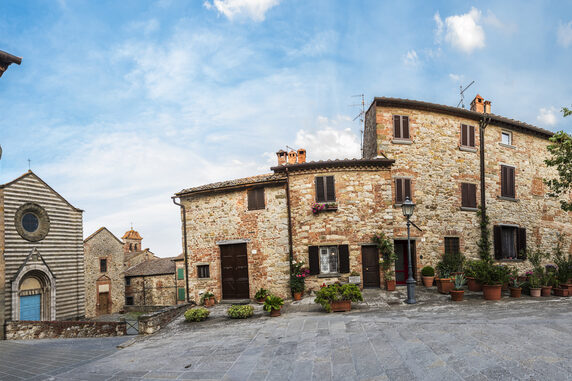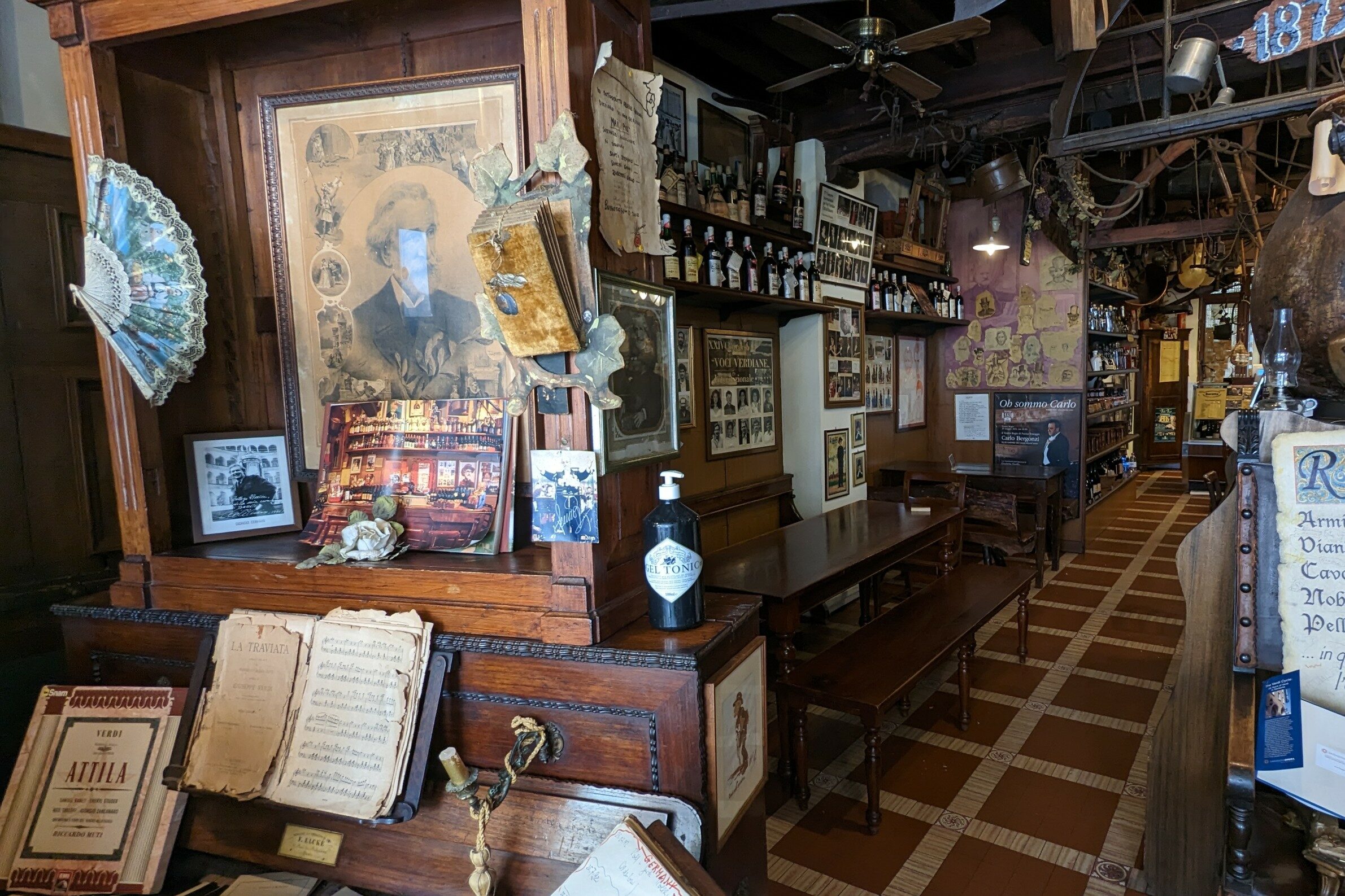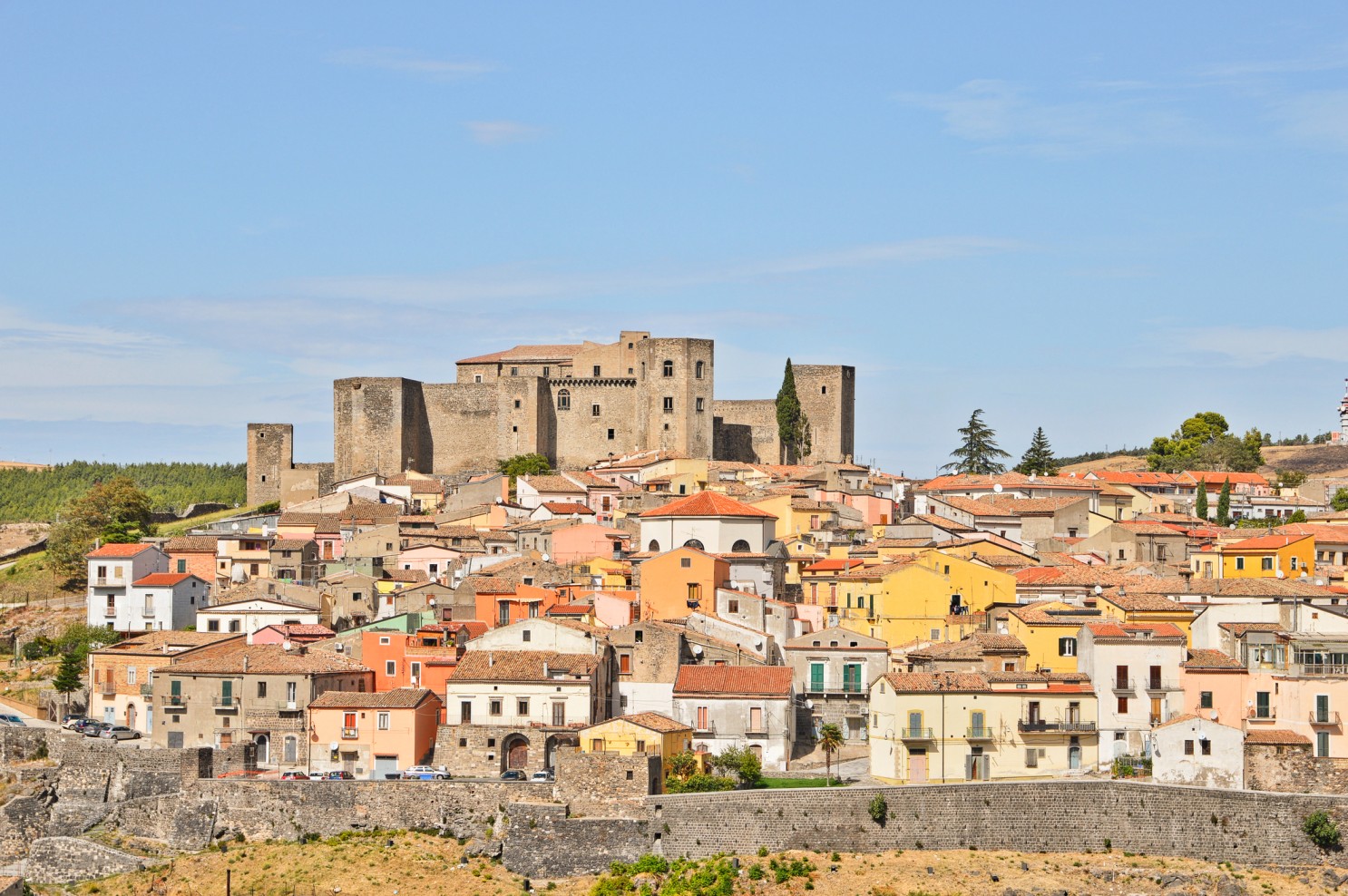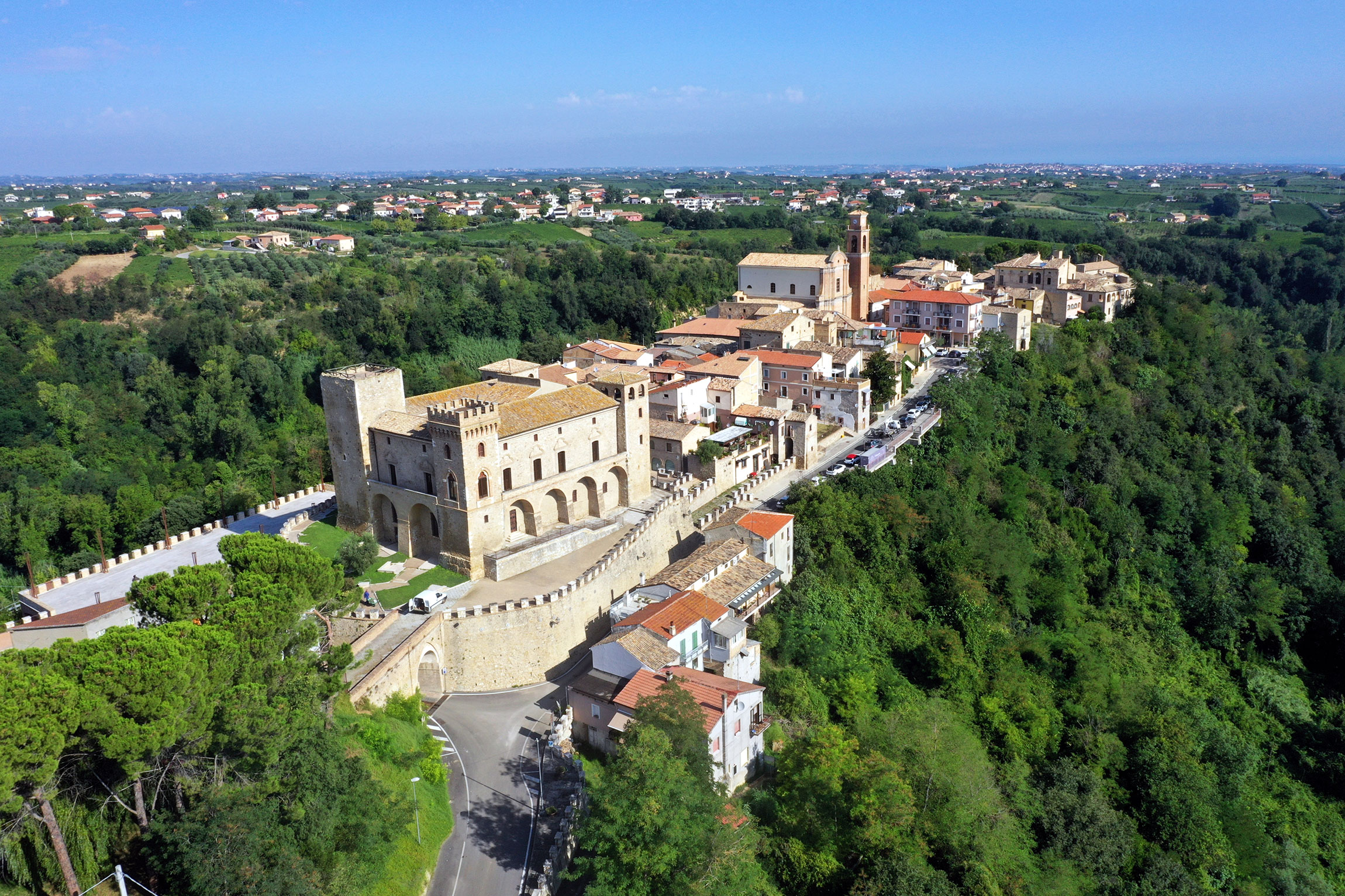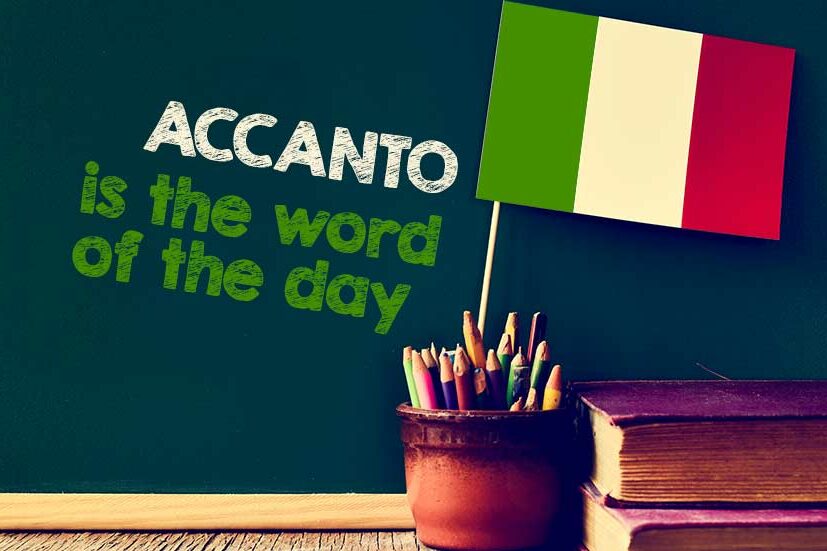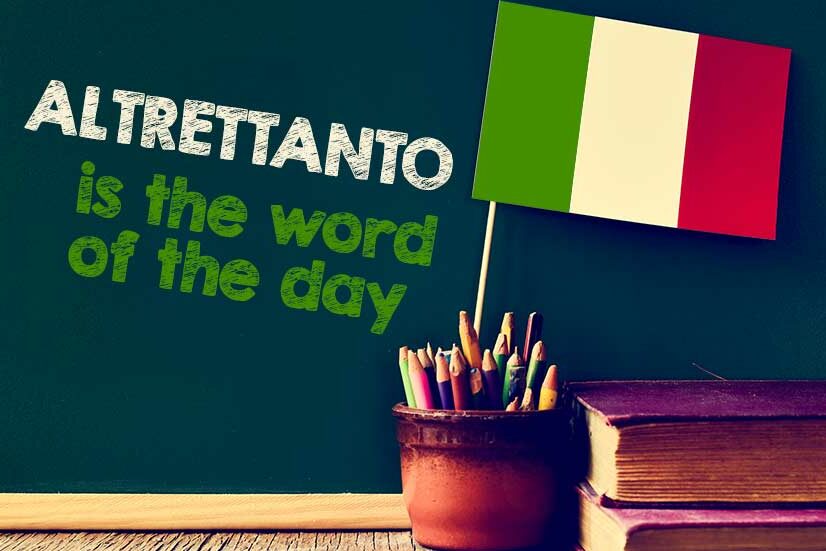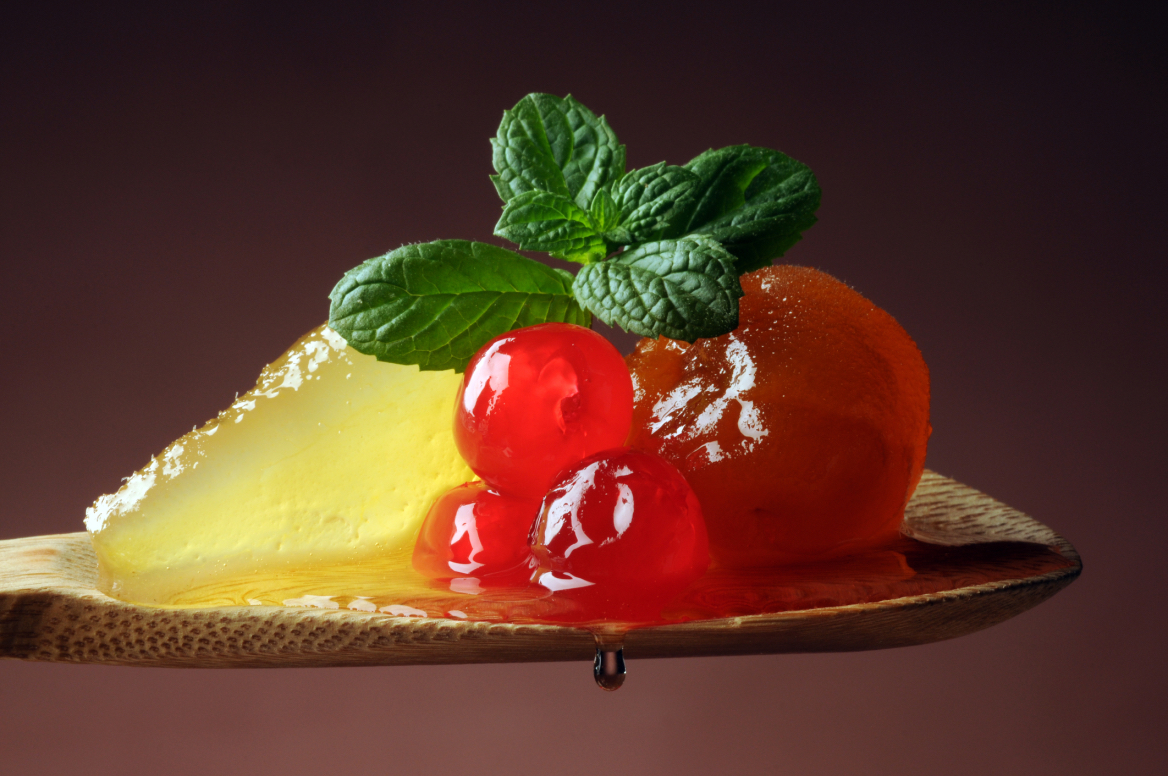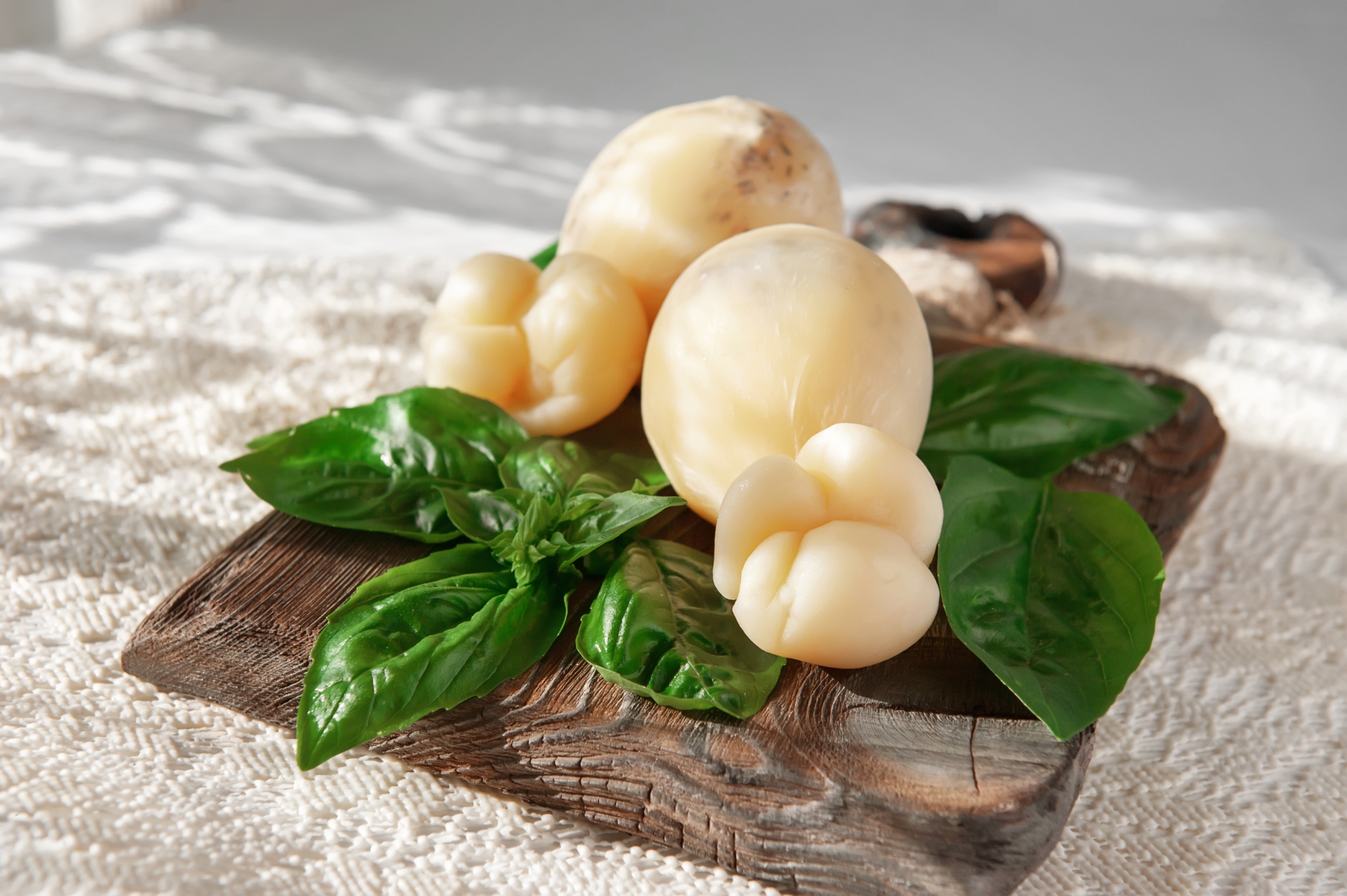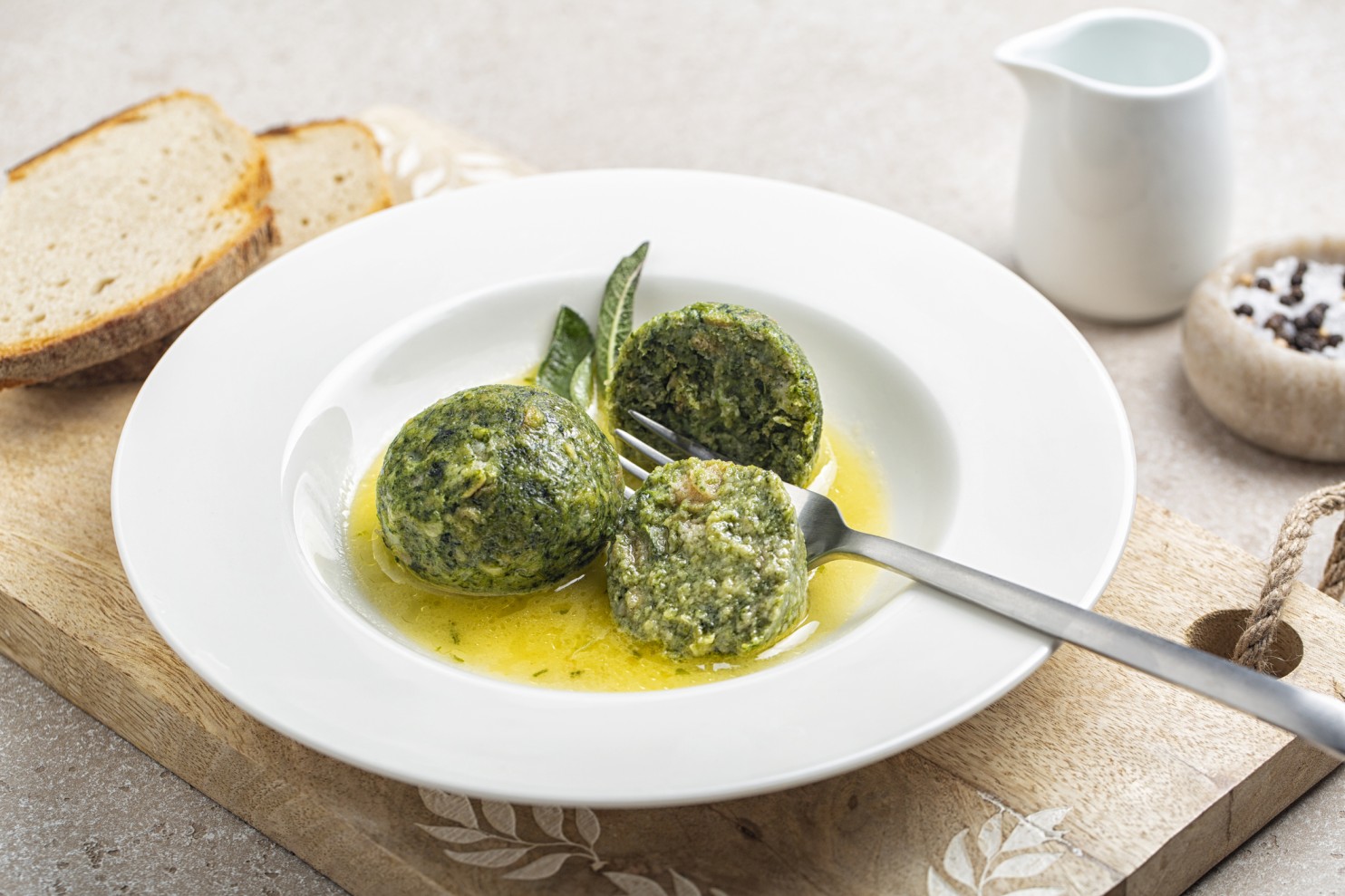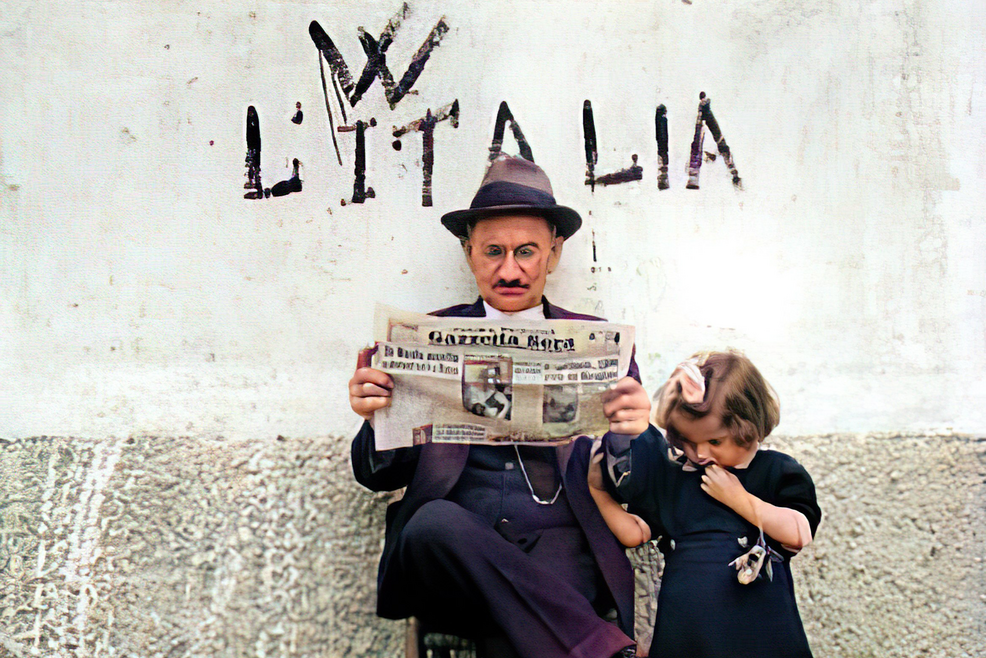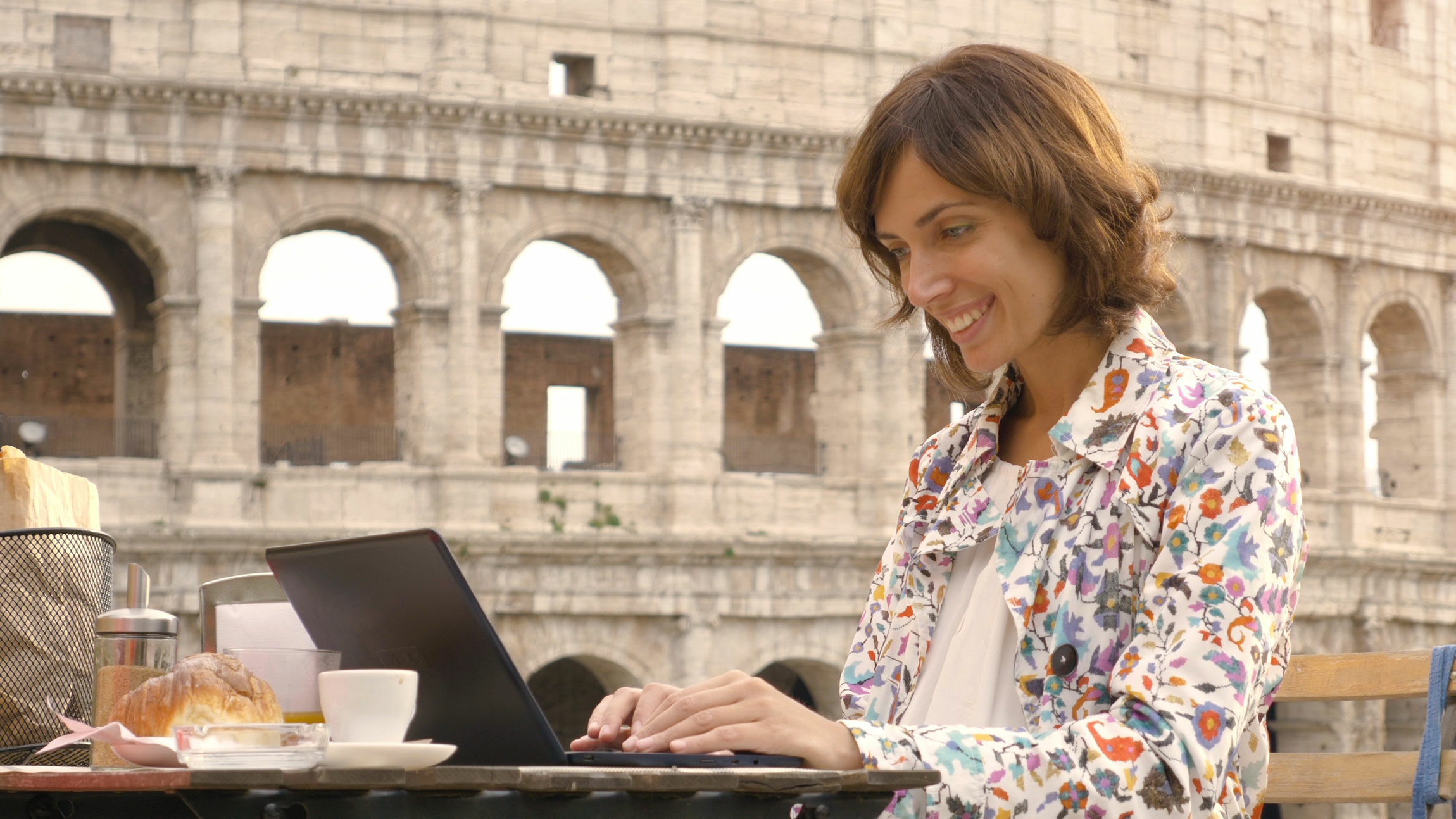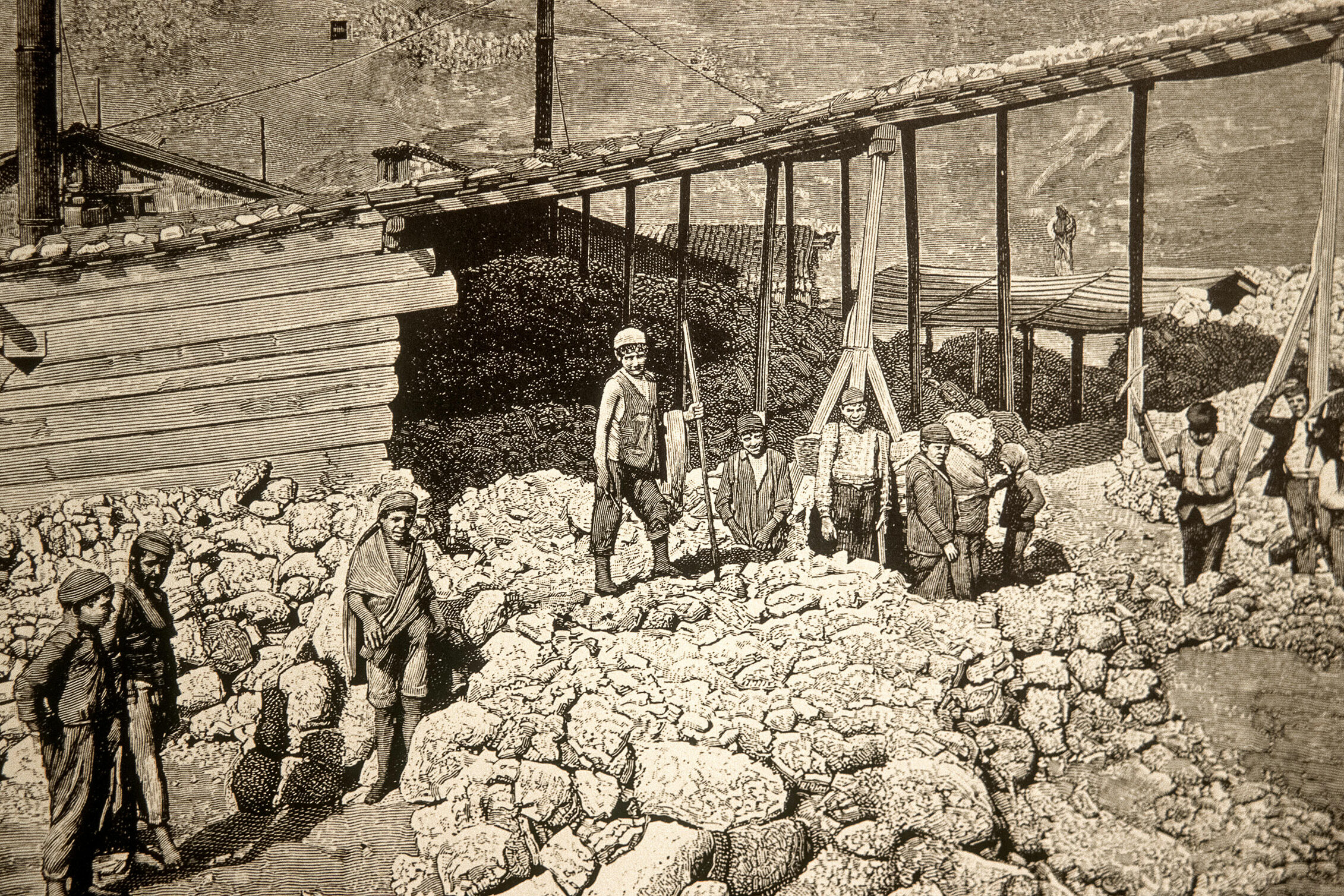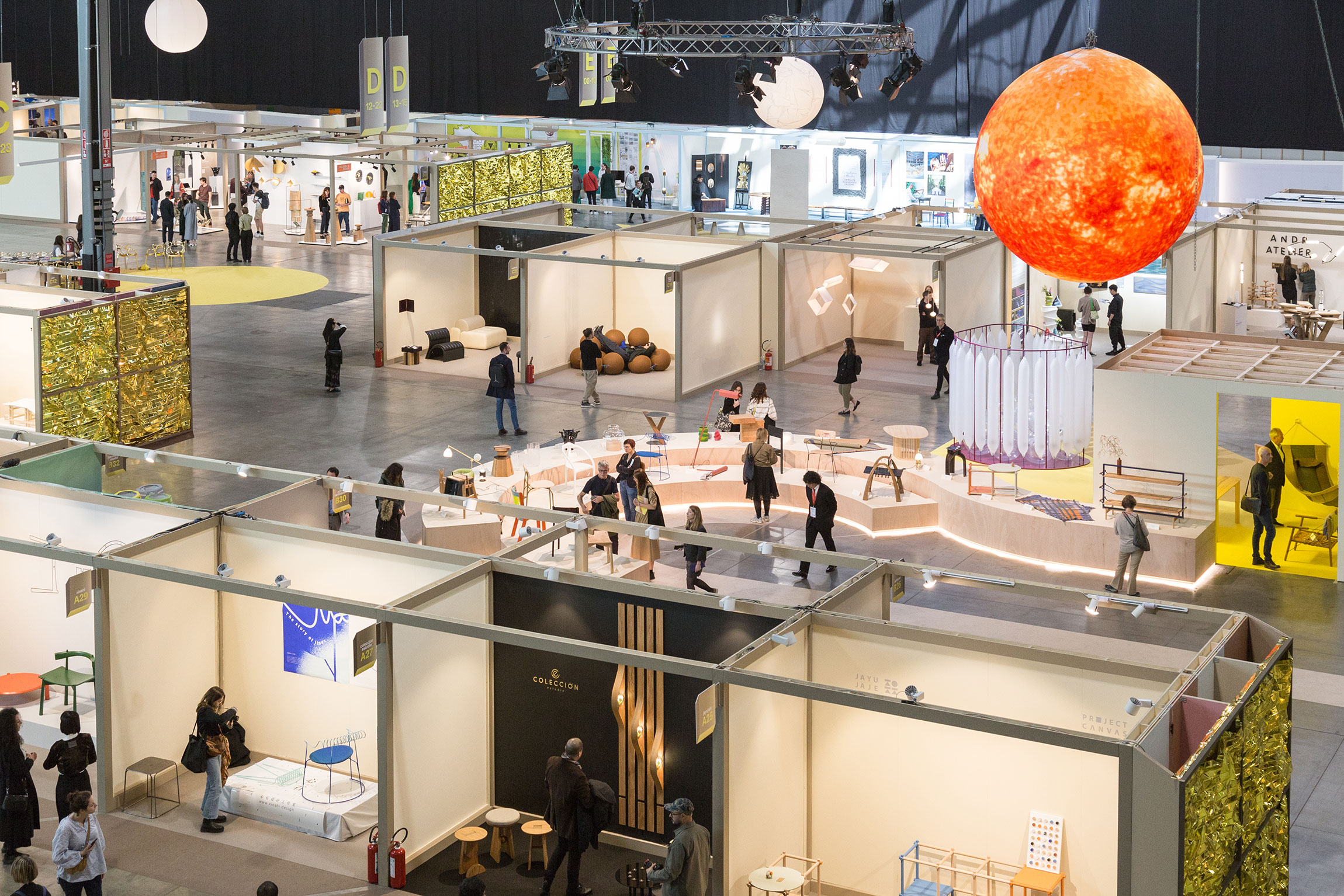The Mediterranean Diet Roundtable (MDR) landed in Los Angeles, for its second edition (Beverly Hills Library, April 20-21).
In 1975, the eminent American biologist, Ancel Keys and chemist Margaret Keys (his wife and collaborator), drew general attention to the health benefits of the Mediterranean diet, particularly for the cardiovascular apparatus.
Today, a wide choir of voices, from the most disparate cultural and scientific backgrounds, “sing in tune” the thoroughly healthy advantages in our bodies and minds of, what should be called, “Mediterranean lifestyle.”
Let’s start with the opening remarks of Antonio Verde, Consul General of Italy in Los Angeles.
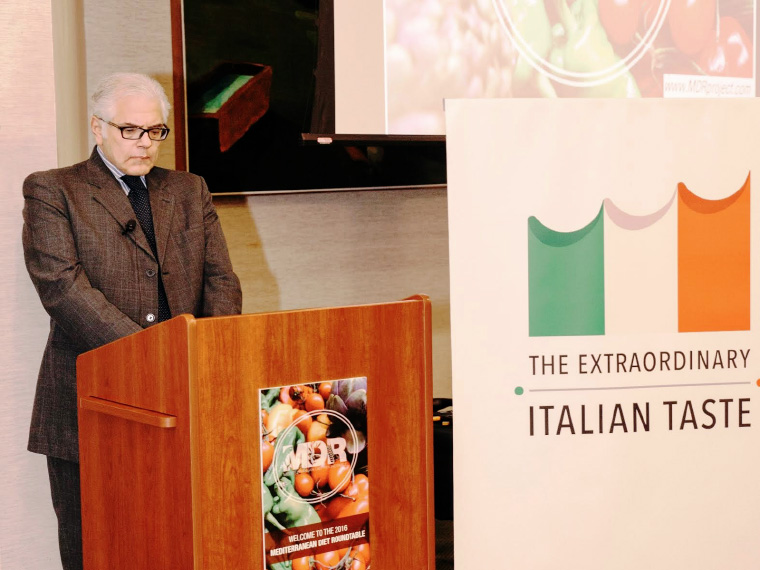
How does the Mediterranean Diet Roundtable (MDR) position itself, within the context of a wider safeguarding of “Made in Italy”?
Italy has always been very active in protecting our most important assets, including a culinary tradition that is renowned around the world, and rightly so. Also in recent years, a 2009 Italian law stated very clearly that solely products, totally made in Italy (design, production and packaging), are entitled to display the labels Made in Italy, 100% Made in Italy, as well as the National flag.
The law also makes provision for sanctions against counterfeiters of such denominations, including pecuniary penalties and confiscations.
In the framework of a national strategy that identifies the Mediterranean Diet as a worldwide promotion and safeguard instrument of Made In Italy, the Mediterranean Diet Roundtable was officially launched last April 5, at a press conference, held at the Chamber of Deputies in Rome.
The important event, organized by the Italy-America Chamber of Commerce West (IACCW) on April 20-21, is part of this very strategy here in the US and it has proved to be a great success.
My impression, from attending the first day of the event, is that the attendance was pretty wide. However, the audience was mostly made of professionals, working in the health and nutrition sectors. How could the conference appeal more to the general public?
I believe that the attendance of those professionals at the Mediterranean Diet Roundtable is of extreme importance.
Matter of fact, they act as precious testimonials, able to reinforce the message towards the general public.
Does the Italian Consulate plan for other healthy food-related events in the Los Angeles area, in the near future?
Certainly, we do. We are planning a rich calendar of Italian food-related initiatives, in partnership with the Italian Chamber of Commerce, as well as the entire “Team Italy,” which also includes the Italian Trade Agency, the Italian Cultural Institute and the Italian Tourist Board.
Among the various events that we are organizing, next fall, we would like also to invite here some famous Italian chefs, to make even more visible the precious contribution that a healthy, and tasty, diet may offer to the human well-being. Stay tuned!
The second spokeswoman is none other than the founder and one of the main organizers of the Mediterranean Diet Roundtable (MDR), Daniela Puglielli.
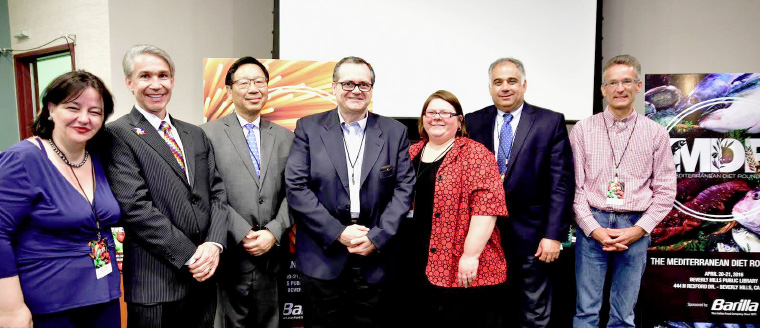
Please, introduce yourself. What is your cultural background?
I would define myself as both eclectic and enthusiast. I hold a Musical Diploma in Piano and a Master in Communications from the University of Turin, Italy.
I have been in marketing and PR for more than 2 decades, directing my own agency (Accent PR, LLC) for the past 15 years.
I moved to the States to follow my husband’s dream as a researcher, soon finding my unique niche in the Italian marketplace.
With a strong background in Food and Market Analysis, I recently realized that the “Made in Italy” was not as widespread as we like to think. There are still huge opportunities to capitalize on.
Hence the idea of creating a discussion around a hot topic such as the Mediterranean Diet, linking its benefits to a possible boost of authentic imports.
The project is actually addressing the potential of the entire Mediterranean basin, but, of course, Italy is the quintessence of the Mediterranean cuisine.
As founder of the Mediterranean Diet Round table, inaugurated last year in NYC, what challenges did you encounter? And what goals did you achieve?
The Mediterranean Diet Roundtable is completely funded by Accent PR and by very few sponsors. This approach allows us to maximize freedom in the planning and also in “experimenting” the best format.
It was a bet not many would have taken, but since the first edition, the MDR received an overwhelming positive response, which encouraged me to progress with a second edition.
Academics from leading universities, as well as stellar Food Service professionals, all took part enthusiastically to the MDR.
The main goal is to group together an elite of super-powers and decision-makers in sectors, the likes of volume food service, colleges, universities, hospitals, k-12 schools, military, chefs and supermarkets.
Distributors such as Sodexo, Sysco, Premier Inc., as well as major purchasing groups are all “connected” to the project.
It might be a pure coincidence that the Dietary Guidelines for Americans for the first time mentioned the Mediterranean Diet as a healthy model and lifestyle.
Or maybe not, as some of the 2015 speakers were important spokespeople in Washington D.C., in the fields of health and nutrition.
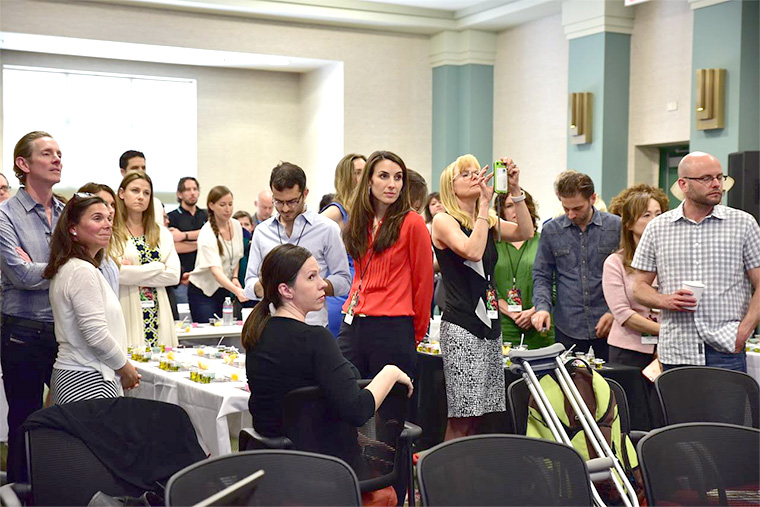
What are the new ingredients of this second edition in L.A.? What are the criteria behind the choice of the Beverly Hills Public Library, as venue for the event?
In the “Big Apple”, the chosen venue was the historical building, which hosts the Graduate Center of the City University of New York (CUNY).
California has about 39 million inhabitants, that is more than the entire Canada. It is a great market, and it also boasts the most Mediterranean climate, outside the Mediterranean basin, which calls for a similar lifestyle.
This year, the organizers chose a “neutral” space – not a Consulate or an ethnically-connoted location – in Los Angeles, one of North America’s most affluent cities, with significant impact in setting trends.
Do you like cooking? What is your favorite dish?
I am not a chef, but I enjoy cooking and, especially, savoring good food with friends and family.
I am a native of Abruzzo, region of Italy, and I grew up, surrounded by great cooks, who refined my appreciation of good ingredients.
I am definitely a “buona forchetta,” as we say in Italy!
Dear readers, earlier I promised you a choir of “disparate voices” and here it is. One of the panelists and interpreter of media’s role in the image of Mediterranean diet, is cook/author and TV personality, Amy Riolo.
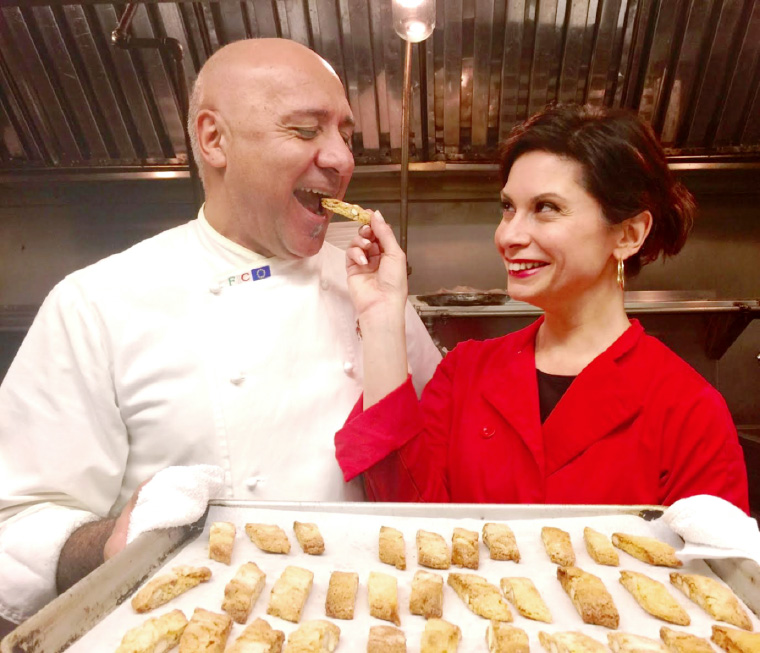
How was your upbringing in an Italian-American household?
I am a fourth generation American. My family hails from Southern Italian region of Calabria. On my father’s side, they come from Crotone, while, on my mother’s, they come from Reggio Calabria.
Italian food and culture, as well as the centrality of family, are all elements, which were passed down to me.
Currently, when I talk to my students, or I address my readers, I emphasize that we didn’t use to go to the movies, or play together in my family.
We used to cook, bake bread, make wine and have our meals as a family.
We even exchanged food as gifts, during holidays. My friends viewed that as a strange practice, but it was totally normal to us.
My cousins from Calabria used to bring us some hand-made cheese or liquor. In exchange, when they were about to leave, I could only give him something, bought at the local mall. In that moment, I realized the importance of making something with our own hands.
What motivated you to pursue a career in culinary arts?
My career is a direct consequence of the way I grew up. I would have not been happy in any other job.
I learned different aspects of cooking from each one of my relatives.
My father didn’t work in the food industry, nor he is a cook. However, he is a real gourmet. Besides, he is passionate about history and, whenever we watched together historical documentaries on National Geographic and similar networks, he used to wonder about the food habits of people from other parts of the world. This is what caused me to research anthropology.
My mom used to cook and bake. She also catered food to large groups of people and I started to help her, from a very early age.
My grandmother used to bake different types of bread and cookies, according to different festivities. Our relatives owned bakeries in Calabria, as well. For that reason, I was never afraid of baking.
My grandfather, from my father’s side, was a military cook during WWII. He encouraged me to cook, without looking at recipes and how to substitute with missing ingredients. Over time, I’ve learned to make the most of the ingredients at my fingertips.
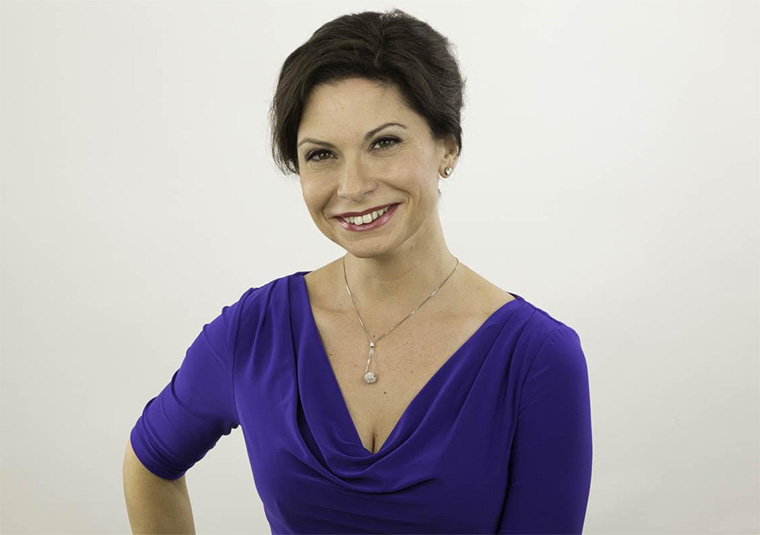
Tell us more about your professional collaboration with Italian chef/restaurateur, Luigi Diotaiuti.
I met him several years ago. Then, four years ago, through the intercession of mutual friends, we started to co-write his cook book, titled “The Al Tiramisu Restaurant Cookbook: An Elevated Approach to Authentic Italian Cuisine.”
We complement each other perfectly, because he is a successful restaurant owner and I teach people how to be better cooks at home. Together we represent all sides of the industry.
In this past years, we have been leading a culinary cruise, as well as holding cooking classes, seminars, demonstrations, and lectures.
We just finished to edit a sizzle reel for a national TV show on cultural culinary travel, which we’ll be hosting together.
Chef Luigi Diotaiuti is also a certified sommelier, so he helped me to pair my dishes, in my Italian Diabetes Cookbook, with the appropriate wine varieties.
Tell us, in a nutshell, what’s your speech topic at the Mediterranean Diet Roundtable?
I talked with other panelists about the current perception of the Mediterranean diet in the media.
One of them was Chef Gino Campagna, a globetrotting chef, hailing from Parma (in the Italian region of Emilia-Romagna) and now residing in L.A., who has been dedicating his life to teach children how to prepare and appreciate delicious and healthy food.
The second was Janet Zappala, winner of multiple Emmy Awards for her news reporting, and a certified nutritional consultant.
Last but not least, Chef Lee Knaz advocated the return to an healthy eating, through the delicious dishes offered by his company, Mission Olive.
Despite the good image of the Mediterranean Diet on the press, for the general public in the U.S., it’s hard to follow this diet, because you can’t just go to a supermarket and buy something labeled “Mediterranean Diet”. People need to get back to basics and just eat in the naturally healthful and tasty way that our ancestors did.
On the contrary, the Paleo diet is filling up the news, because of the wide availability of its products.
We strived to give the audience useful tips to adopt the Mediterranean lifestyle, which combines pleasure with health.
I visited Calabria for the first time, during my college years. I could observe how everyone of our family had an identical twin in Calabria. The only difference was that those of us in the United States had lots of health problems, like diabetes, cardiovascular diseases and a shorter life expectancy.
The huge cultural difference is that, in the U.S., we look at food as an “enemy”, something to avoid, while in Italy and in the rest of the Mediterranean region, food is seen as an “ally” and almost a medicine.
Are you taking part to other food-related events in Los Angeles?
Six years ago, I came here as a tourist, for the first time. Last year, I got invited to appear on The Home and Family Show, on the Hallmark network.
Over time, I took part to several events, organized by the Italian Consulate, The Italian Cultural Institute, The Italy America Chamber of Commerce, and the International Visitors Center of L.A.
Last week, I presented a recipe from one of my cookbooks, aired by Hallmark. On Friday, I spoke about diabetes and conducted a cooking demo in Spanish with recipes, from my Italian Diabetes Cookbook, to the patients at the California Medical Center.
Last but not least, among the scientific representatives, here are the considerations from Professor Eugenio Luigi Iorio, one of the top experts in oxidative stress.
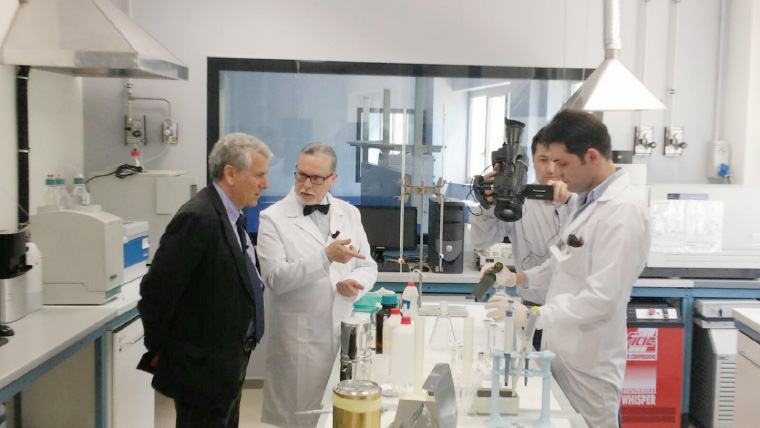
Please, introduce yourself. What is your cultural background?
I was born in Foggia (in the Apulia region of Italy) and I am a medical doctor and biochemist.
I hold a PhD in Biochemical Sciences and my research, over the years, has focused mainly on the oxidative stress.
Tell us more about the conference on the Mediterranean Diet, as strong point within a wider promotion of Made in Italy, held at the Italian Chamber of Deputies in Rome, last April 5.
We officially presented the Mediterranean Diet Roundtable (MDR), at the press conference, held at the Italian Chamber of Deputies, last April 5, in Rome. There were lots of producers, especially of olive oil, in attendance.
The aim of my presentation, during the MDR in L.A., was to explain why the Mediterranean diet is healthy. It’s widely proved that this lifestyle assures a good quality of life and, especially, prevents from cardiovascular and neurodegenerative diseases.
There is an explanation at molecular level. I’ve studied specifically the balance between free radicals – atoms or molecules containing unpaired electrons – and antioxidants – protective molecules.
One theory about the healthy properties of the diet is that it includes plenty of fruit and vegetables, which are rich in polyphenols – signaling molecules, which communicate directly with our DNA, giving instructions to produce antioxidants. The latter fight against free radicals, whose accumulation in our cells, over the years, is responsible for our aging.
The second theory tells us that, fruit and, mostly, green vegetables contain a large percentage of nitrite salts. The latter undergo a biochemical reaction in our mouth and transform into nitric oxide, which is a vasodilator. The vasodilatation enables the blood to circulate better through our tissues and the pressure to decrease.
In 2007, you founded the International Observatory of Oxidative Stress. What has it been accomplished, so far? What long-term goals are still to be reached?
I am the President of this non-profit organization. The aim of the latter is to translate the medical research into clinical practice.
Through a small, “made in Italy” device, which analyzes a drop of blood, we perform biochemical measurements of free radicals, antioxidants and the level of oxidative stress in our body.
The latter is an emerging risk factor, in fact, if the level of oxidative stress stays high for five/ten years, it may lead to cardiovascular diseases and even cancer.
The observatory includes around three thousand and five hundred researchers, from 35 countries worldwide. Aside from the main headquarters in Salerno (city in Campania, region of Italy), our second main branch is in Japan.
Last year, I accompanied the TV troupe of Le Iene (The Hyenas) – a popular satirical show which airs on the Italian channel, Italia 1 (part of the Mediaset network) – to Okinawa island, south of mainland Japan.
This small island is famous for the longevity of its inhabitants, with an impressive rate of 34 centenarians per 100,000 people.
Besides, what’s really incredible is that these people age without any disease. I was impressed by a centenarian man, able to read the newspaper without reading glasses.
Aside from a small percentage of genetic causes, the deciding factor (maybe 70-75%) in their longevity is their diet, largely based on purple-fleshed, sweet potatoes (rich in polyphenols) and goya (bitter melon).
The ideal paradigm for our health would be a “Mediterr-Asian” diet.
Could you delve more into how your main field of research apply to the Mediterranean diet?
We are observing in particular the young population, which, as opposed to the past, now tends to be generally overweight and suffers from obesity.
The levels of oxidative stress, registered in guys and girls attending high school, are surprisingly high.
In 2014, in cooperation with the Harvard Lifestyle Medicine Center, I founded the Popular University of Lifestyle Medicine, in the town of Ascea (in Cilento, a traditional geographical area in Campania). Our main focus is on the education of young generations, through seminars and cooking demonstrations.
We developed also a test kit to measure the oxidation of olive oil. By collecting a drop of the latter in a phial and observing its change of color, every consumer can check that the peroxide number stays below twenty, and, thus, the olive oil is not oxidized.
Maybe, not everyone knows that this precious dressing is the top form of prevention against arteriosclerosis.
Do you like cooking? What is your favorite dish?
My favorite dish is “pasta e fagioli” (pasta and beans), a complete meal, which allows us to avoid meat.
It’s becoming popular in Italy, the brand “Pasta Dolce Vita”, which is 97 % made of regular grains and 3 % of chitosan, extracted from the shrimps’ outer shell. Matter of fact, it is clinically proved to favor hypoglycemia and to lower blood pressure.
For the first time in the world, my team and I introduced a certified recipe of Neapolitan whole-wheat antiaging pizza, containing eight different vegetables and all the main ingredients of the Mediterranean Diet.
